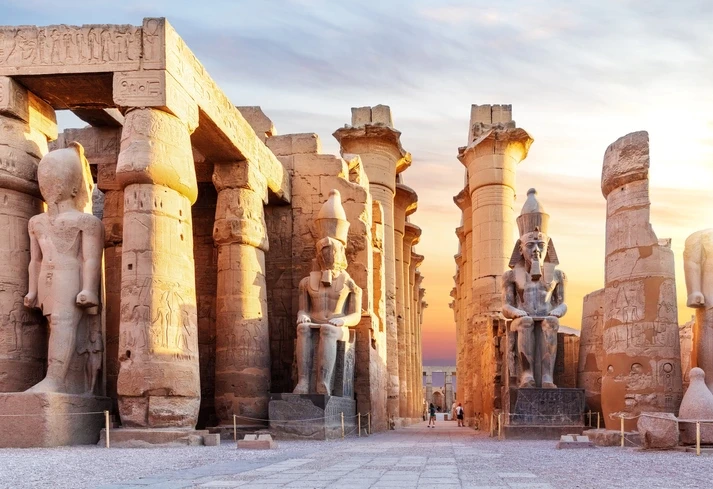
Understanding Safety in Egypt
Egypt is one of the world's most popular travel destinations, known for its pyramids, ancient temples, and breathtaking landscapes. While the country has experienced political shifts and security concerns in the past, tourism remains a major industry, with millions of visitors exploring Egypt each year.
In this guide, we’ll cover current safety conditions, essential travel tips, and practical advice to help you enjoy a secure and memorable trip to Egypt.
1. Is Egypt Safe for Tourists?
- Egypt is generally safe for tourists, especially in well-traveled areas like Cairo, Luxor, Aswan, and the Red Sea resorts.
- The Egyptian government has taken significant measures to enhance security in tourist zones, airports, and archaeological sites.
- Violent crime is rare, but petty theft and scams can occur, particularly in crowded places.
Safe Tourist Areas in Egypt
- Cairo & Giza – Home to the Pyramids, the Egyptian Museum, and historic mosques.
- Luxor & Aswan – Ancient temple complexes and scenic Nile cruises.
- Hurghada & Sharm El-Sheikh – Popular beach resorts with excellent diving and snorkeling.
- Siwa Oasis & the White Desert – Stunning landscapes, though best visited with a guide.
2. Crime and Scams: What to Watch Out For
- Overcharging and fake souvenirs – Always negotiate prices and buy from reputable stores.
- Fake tour guides – Hire only licensed guides with official badges.
- Taxi overcharging – Use Uber, Careem, or metered taxis to avoid inflated fares.
- Baksheesh (Tipping pressure) – While tipping is customary, avoid being pressured into overpaying.
How to Stay Safe from Scams
- Politely decline unwanted offers and walk away if pressured.
- Settle on prices before accepting services, especially for taxis and market purchases.
- Use hotel-recommended tour operators to book excursions.
3. Women Travelers: Safety Tips
Egypt is generally safe for female travelers, but some cultural sensitivities should be noted:
- Dress modestly, covering shoulders and knees, especially in religious sites.
- Avoid excessive eye contact and firm responses deter unwanted attention.
- Use Uber or hotel-arranged taxis instead of hailing cabs on the street.
- Travel in groups if exploring less touristy areas.
4. Transportation Safety
- Domestic Flights – Best for long-distance travel (Cairo to Luxor, Aswan, or Sharm El-Sheikh).
- Trains – Safe, but first-class tickets are recommended for comfort.
- Taxis & Ride Apps – Use Uber and Careem in Cairo and Alexandria for safer rides.
- Nile Cruises & Feluccas – A great way to explore Luxor and Aswan.
Avoiding Risks on the Road
- Traffic in Cairo is chaotic – Stick to organized transport.
- Avoid driving yourself, as traffic rules are often disregarded.
- For desert trips, travel with a guide and in a convoy if required.
5. Health and Hygiene Tips
- Drink only bottled or filtered water – Tap water is not safe for consumption.
- Avoid raw vegetables and street food if you have a sensitive stomach.
- Use hand sanitizer frequently.
- Pack essential medicines, including rehydration salts for potential stomach upsets.
Vaccinations and Travel Insurance
- Recommended vaccinations: Hepatitis A, Typhoid, and routine travel shots.
- Travel insurance is highly recommended, covering medical emergencies, trip cancellations, and theft.
6. Political Stability and Protests
- Egypt has experienced political changes, but tourist areas remain stable and secure.
- Avoid political demonstrations and protests, as gatherings can sometimes escalate.
- Stay informed through official government travel advisories before your trip.
7. Visiting the Sinai Peninsula & Desert Regions
Some parts of Egypt, particularly the North Sinai region, have security concerns due to militant activity. However:
- South Sinai (Sharm El-Sheikh, Dahab, Nuweiba) is considered safe for tourists.
- Western Desert & Siwa Oasis – Safe but best visited with a registered tour company.
- Always check travel advisories before venturing into remote areas.
8. Safety for Adventure Travelers
- Scuba Diving & Snorkeling: The Red Sea is a world-class diving destination, but ensure you book with licensed diving centers.
- Hot Air Balloon Rides in Luxor: Popular and generally safe, but always verify operator credentials.
- Desert Safaris: Use experienced tour operators and travel in groups.
9. Emergency Contacts & Important Numbers
- Tourist Police: 126
- General Emergency: 122 (Police), 123 (Ambulance), 180 (Fire Department)
- Your Country’s Embassy: Have the contact details handy.
- Hotel Front Desk: They can assist with medical help or safety concerns.
Frequently Asked Questions (FAQs) About Safety in Egypt
1. Is Egypt safe for solo travelers?
Yes, but it's best to stick to tourist-friendly areas, use trusted transport, and avoid isolated places at night.
2. What areas should tourists avoid?
Avoid North Sinai and any restricted military zones. Stick to Cairo, Luxor, Aswan, and the Red Sea resorts.
3. Is it safe to visit the Pyramids?
Yes! The Pyramids of Giza are well-secured, but expect persistent vendors. Hire a licensed guide to enhance your experience.
4. Can you walk around Cairo at night?
Certain areas like Zamalek and Downtown Cairo are relatively safe, but always stay in well-lit and busy streets.
5. Should I worry about pickpocketing in Egypt?
Pickpocketing can happen in crowded areas like bazaars and public transport, so keep valuables secure.
Conclusion: Egypt is Safe with Proper Precautions
Egypt remains a safe and welcoming destination for millions of travelers each year. By following common-sense precautions, using trusted transport, and respecting local customs, you can enjoy a trouble-free and unforgettable experience.
Whether you're exploring ancient tombs, sailing down the Nile, or diving in the Red Sea, Egypt offers a journey like no other. Plan wisely, stay informed, and enjoy the adventure of a lifetime!




